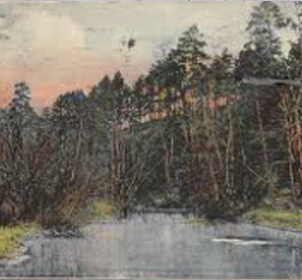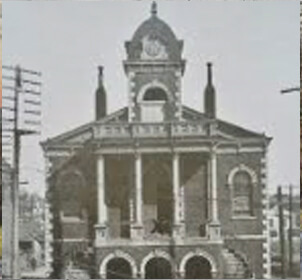Our History
We’ve been replenishing the lakes, streams and rivers of Upstate South Carolina since 1925. Our rich history demonstrates the dedication and forward-thinking innovation of ReWa leadership and staff to enhancing quality of life in our region through responsible and sustainable wastewater treatment practices.
1900s

1925
As Greenville began to grow, the Greater Greenville Sewer District was created to improve environmental sanitary conditions.

1948
The Federal Water Pollution Act was passed.

1972
The Clean Water Act established the basic structure for regulating pollutant discharges into the waters of the United States.

1974
Greater Greenville Sewer District is renamed to Western Carolina Regional Sewer Authority.

1984
The invention of the Dechlorination Process allowed for the removal of chlorine before water was diffused into local waterways.

1989
We launched the ReWa Biosolids Program to enhance local crop production by improving soil fertility.

1994
The Roundtable was established to evaluate and plan for the future by developing a 20-year strategic plan to align regional wastewater infrastructure with projected area growth while promoting environmental sustainability.
2000s

2004
We introduced cutting-edge technology into our water treatment process by using ultraviolet disinfection and deep bed sand filters.

2009
Western Sewer Authority is changed to the name we have today - Renewable Water Resources (ReWa).

2010
We launched the Be Freshwater Friendly and Project Rx programs to educate the Upstate community on the impact of day-to-day decisions in water protection and preservation.

2012
We’re recognized as the first Wastewater Utility in South Carolina to be accepted into the Environmental Management System for the ReWa Biosolids Program and the 33rd agency in the United States certified for this recognition.

2013
We collaborated with the City and County of Greenville to form the Reedy River Water Quality Group to proactively address water nutrient pollution.

2016
Greenville Health System (now Prisma Health) partnered with us to provide Project Rx 24/7 medication drop boxes at multiple locations within the Upstate.

2017
We began our first tunnel project, DIG Greenville, designed to improve wastewater infrastructure in Greenville for the next 100 years.

2018
We opened our state-of-the-art laboratory facility with interactive educational exhibits on environmental and wastewater treatment processes.

2019
Our comprehensive 5-year strategic plan was released outlining our organization’s growth plan and vision for the future.